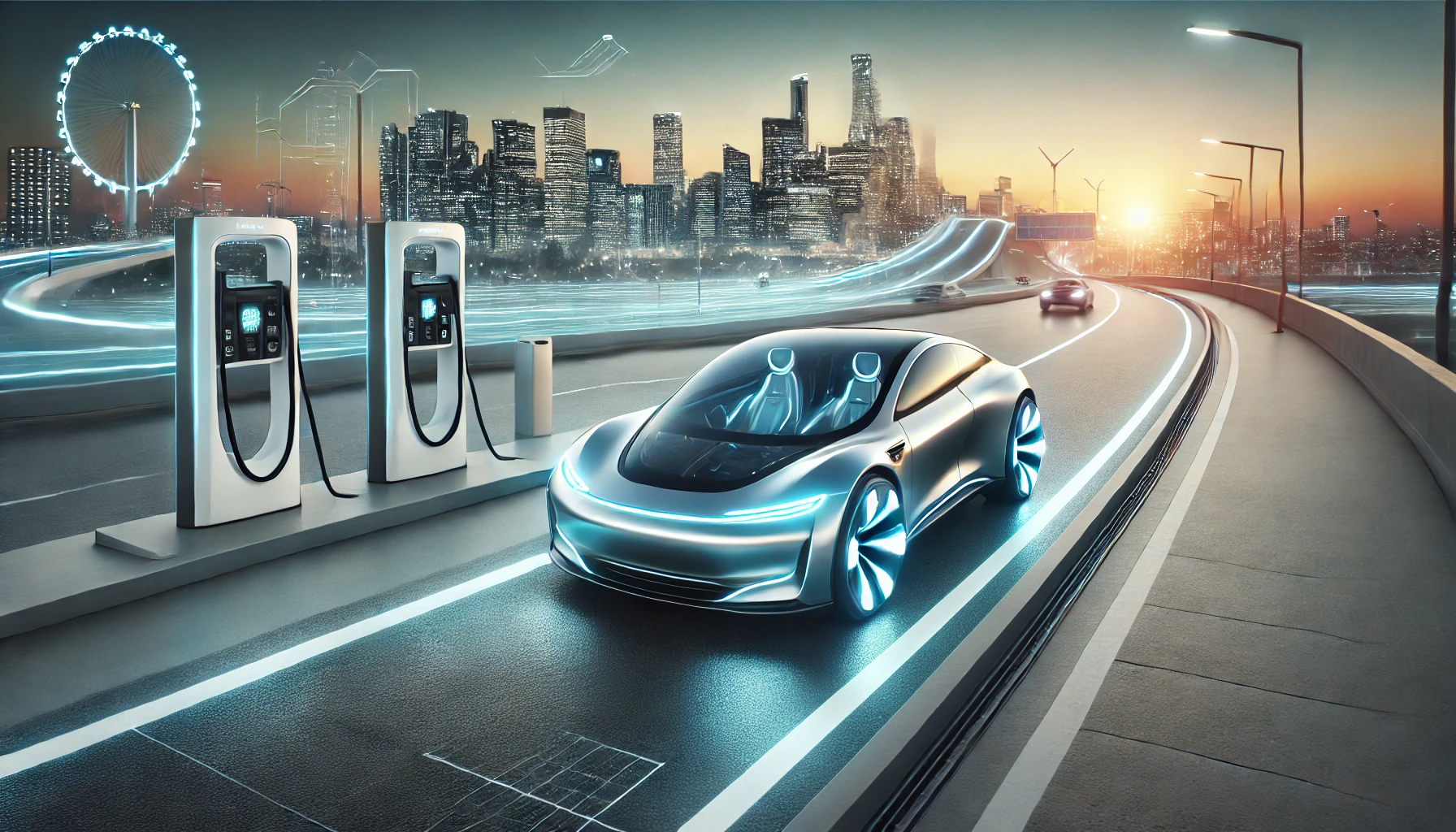Electric vehicles (EVs) are no longer just a trend—they’re the future of transportation. With growing concerns about climate change, air pollution, and the rising costs of fossil fuels, consumers and governments are shifting towards cleaner alternatives. EVs are not only an eco-friendly option but are also becoming more affordable and practical. In this blog, we’ll explore the major EV companies, compare their strengths, and provide insights into some of the best EV cars on the market today.
The EV Boom: What’s Driving the Shift?
Several factors have contributed to the rise of electric vehicles:
- Environmental Concerns: Governments worldwide are implementing stricter emission regulations, and EVs produce zero tailpipe emissions.
- Technological Advancements: Battery technology has improved, leading to longer driving ranges and faster charging times.
- Affordability: As production scales up, EVs are becoming more affordable, with many models now competing in price with traditional gasoline cars.
- Incentives: Many countries offer tax credits, rebates, and other incentives to encourage the adoption of EVs.
Now, let’s take a closer look at the major players in the EV market and how they compare.
Major Electric Vehicle Companies
1. Tesla
No conversation about electric vehicles can start without mentioning Tesla. Founded by Elon Musk, Tesla has set the standard for EVs in terms of performance, range, and innovation. The company’s Model 3, Model S, Model X, and Model Y have become household names.
- Strengths: Tesla’s vehicles boast excellent range, advanced autonomous driving features (Autopilot), and a widespread Supercharger network. Tesla is also a leader in over-the-air software updates, constantly improving its cars even after purchase.
- Weaknesses: High price points, occasional quality control issues, and a sometimes confusing service experience.
2. Rivian
A relative newcomer, Rivian has quickly made waves in the EV space. With a focus on adventure and off-road capabilities, the company’s R1T pickup truck and R1S SUV cater to those looking for electric vehicles with a rugged edge.
- Strengths: Innovative design, robust off-road capabilities, and strong performance. Rivian’s vehicles offer unique features like a gear tunnel for extra storage and a camp kitchen.
- Weaknesses: Availability is still limited, and the vehicles come at a premium price.
3. Lucid Motors
Lucid is positioning itself as a luxury EV brand, with its flagship Lucid Air sedan competing directly with Tesla’s Model S. Lucid focuses on delivering high-end interiors, cutting-edge technology, and impressive range.
- Strengths: Luxurious interiors, long range (up to 520 miles on a single charge for the Lucid Air Dream Edition), and fast charging.
- Weaknesses: High cost and limited production capacity as of now.
4. BYD
Hailing from China, BYD is a giant in the EV world, producing not only passenger vehicles but also electric buses and trucks. BYD is one of the few companies that produces its own batteries, giving it a competitive edge in pricing and supply chain control.
- Strengths: Affordable pricing, a wide range of vehicle options, and strong growth in international markets. BYD is also leading the charge in electric buses and commercial vehicles.
- Weaknesses: Lack of brand recognition in some markets, especially outside of China.
5. Ford
Ford’s entry into the EV market with its Mustang Mach-E and the upcoming F-150 Lightning electric truck shows that traditional automakers are serious about going electric. Ford has also invested heavily in electrifying its most popular models.
- Strengths: Ford’s vehicles offer a balance of performance, range, and affordability. The brand recognition and widespread service network give Ford an edge in customer trust.
- Weaknesses: While Ford’s EVs are competitive, they don’t yet have the same level of technology innovation as Tesla or Rivian.
6. Volkswagen
Volkswagen has launched its ID.4 electric SUV as part of its commitment to electrification. The German automaker has ambitious plans to electrify its entire lineup in the coming years, and its EVs are designed to be practical and accessible.
- Strengths: Affordable pricing, good range, and a commitment to sustainable manufacturing. Volkswagen’s global reach also makes its vehicles widely available.
- Weaknesses: Some critics argue that VW’s EVs lack the excitement or innovation found in Tesla or Lucid models.
Comparing the EV Giants
| Company | Strengths | Weaknesses | Notable Models |
|---|---|---|---|
| Tesla | Long range, Autopilot, Supercharger network | High prices, quality control issues | Model 3, Model S, Model Y |
| Rivian | Off-road capability, unique features | Limited availability, premium pricing | R1T, R1S |
| Lucid Motors | Luxury interiors, long range | Expensive, limited production | Lucid Air |
| BYD | Affordable, strong international presence | Low brand recognition in some markets | Tang EV, Han EV |
| Ford | Affordable, trusted brand, good service network | Lags behind in innovation | Mustang Mach-E, F-150 Lightning |
| Volkswagen | Affordable, sustainable manufacturing | Lacks innovation in some areas | ID.4 |
Best EVs on the Market in 2024
Now that we’ve explored the major players, let’s look at some of the best EVs you can buy today, based on range, features, and overall value.
1. Tesla Model 3
- Range: 358 miles
- Price: Starting at $40,240
- Why It’s Great: The Model 3 is one of the most affordable Tesla models, yet it still offers excellent range, a minimalist design, and access to Tesla’s Supercharger network. It’s perfect for those who want a combination of performance and practicality.
2. Ford Mustang Mach-E
- Range: 300 miles
- Price: Starting at $42,995
- Why It’s Great: Ford’s Mustang Mach-E blends the iconic Mustang styling with modern EV technology. It’s spacious, fun to drive, and priced competitively against Tesla’s Model Y.
3. Lucid Air
- Range: Up to 520 miles
- Price: Starting at $82,400
- Why It’s Great: With the longest range of any EV on the market, the Lucid Air is a luxury sedan that competes with Tesla’s Model S. It’s perfect for those who want to push the limits of what EVs can do, while enjoying a plush interior.
4. Rivian R1T
- Range: 314 miles
- Price: Starting at $73,000
- Why It’s Great: The Rivian R1T is perfect for adventure lovers. This electric pickup truck has serious off-road capabilities, plenty of storage, and innovative features like a built-in kitchen.
5. Volkswagen ID.4
- Range: 275 miles
- Price: Starting at $38,995
- Why It’s Great: The ID.4 is one of the more affordable electric SUVs on the market, offering good range, a practical interior, and a focus on sustainability.
Final Thoughts and Recommendations
The EV market is growing rapidly, with more options available than ever before. Whether you’re looking for an affordable commuter car, a luxury sedan, or an adventure-ready pickup truck, there’s an EV for you. Tesla remains the leader in terms of range and technology, but competitors like Rivian, Lucid, and Ford are quickly catching up. When choosing an EV, consider your driving needs, budget, and access to charging infrastructure.
Best EVs by Category:
- Best Affordable EV: Tesla Model 3
- Best Luxury EV: Lucid Air
- Best Electric SUV: Ford Mustang Mach-E
- Best Electric Pickup Truck: Rivian R1T
With the continued development of EV infrastructure and battery technology, the future of electric vehicles looks incredibly promising. Whether you’re ready to make the switch now or considering it for the future, the shift to electric is inevitable and exciting.


Welldone
It’s very important to my studies , thank you bro